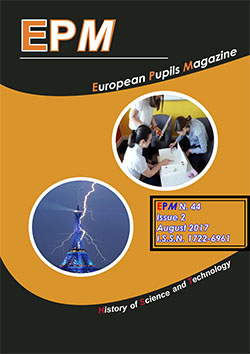Math Science Chemistry Economics Biology News Search
Medieval Alchemy
The Hellenic tradition of Alchemy gradually declines between 8th and 10th century, about the time when its mastery has started to spread in the Arabic world. Arab Yabir Ibn Hana, who was called Geber, in Latin, developed, based on the Hellenistic tradition, a theory, which lasted up to 17th century.
According to it, to the four Aristotelian elements correspond four properties the materials: warm, cold, dry and wet, which connect to matter as material, with no other characteristics.
During the creation of metals, these properties are specified with mercury and sulfur, which are brought together under the agency of the constellations and produce metal. For the production of gold it is necessary, besides the correct proportion of mercury and sulfur the right counterbalance between heat and moisture. Geber’s ideas were developed over the next decades and centuries by other Arab and European Alchemists.
This development was achieved mostly in Spain during the 13th century, when the alchemistic studies developed at the same time with relevant theological ones of the Catholic Church. Almost at that Alchemy was again spread in Europe via Arabic translations, through Byzantium, Italy and Spain, along with Aristotle and Plato’s works.
In the 14th century the Alchemists began to prune to the healing potentialities of Alchemy. Johannes de Rupecissa introduces, in his writing Book about distillations the idea that all matter contains a substance like alcohol, called quinta essentia, which functions in a preservative and sterilizing way, which leads to the increase of the anticipated life limit – this wonder-working substance which is produced from gold and makes up the potable/gold (aurum potabile), is allowed to be used only by doctors and its heals all diseases. Another widely extensive medicine was, according to Lullus, the distillation/extract of antimony. Nowadays we know that all these constitute/make up along with mercury very powerful poisons.
The fact, though, that they were given in infinitesimal quantities did not cause the immediate death of the recipients. Some western church people (clergy) would take advantage of the rumors about transmutation and gold production to cover and give reasons for the excessive riches they acquired during the performance of their pastoral mission.
The evolution of Alchemy form Medieval times till now
Over the 15th and 16th centuries Alchemy in Europe was developed into an acceptable method of searching God with the advantage that if was out of and over all religious disputes. Thus, it was acceptable in this form by all distinguished minds of the time such as Newton. But the establishment of Chemistry by Boyle as independent field science in the mid 17th century and the idea that natural elements should be studied with experimental processes and not with metaphysical reasoning, Alchemy was pushed out of the time light. Despite all that Alchemy was never abandoned. Even nowadays new philosophical and social ideas appear with reference to alchemistic beliefs. These pursuits find suitable ground for acceptance in a large section of the population due to lack of adequate education and consequently to their failing to follow and understand the often complex interpretations of the evolutions of science.
Bibliography and Iconography
- Fraggopoulou - History of Technology.
- H. Leicester - History of Chemistry.
- Encyclopedic Multidictionary.
- Chimica Chronica, a magazine of the Greek Chemists Association.
- www.esoterica.gr


